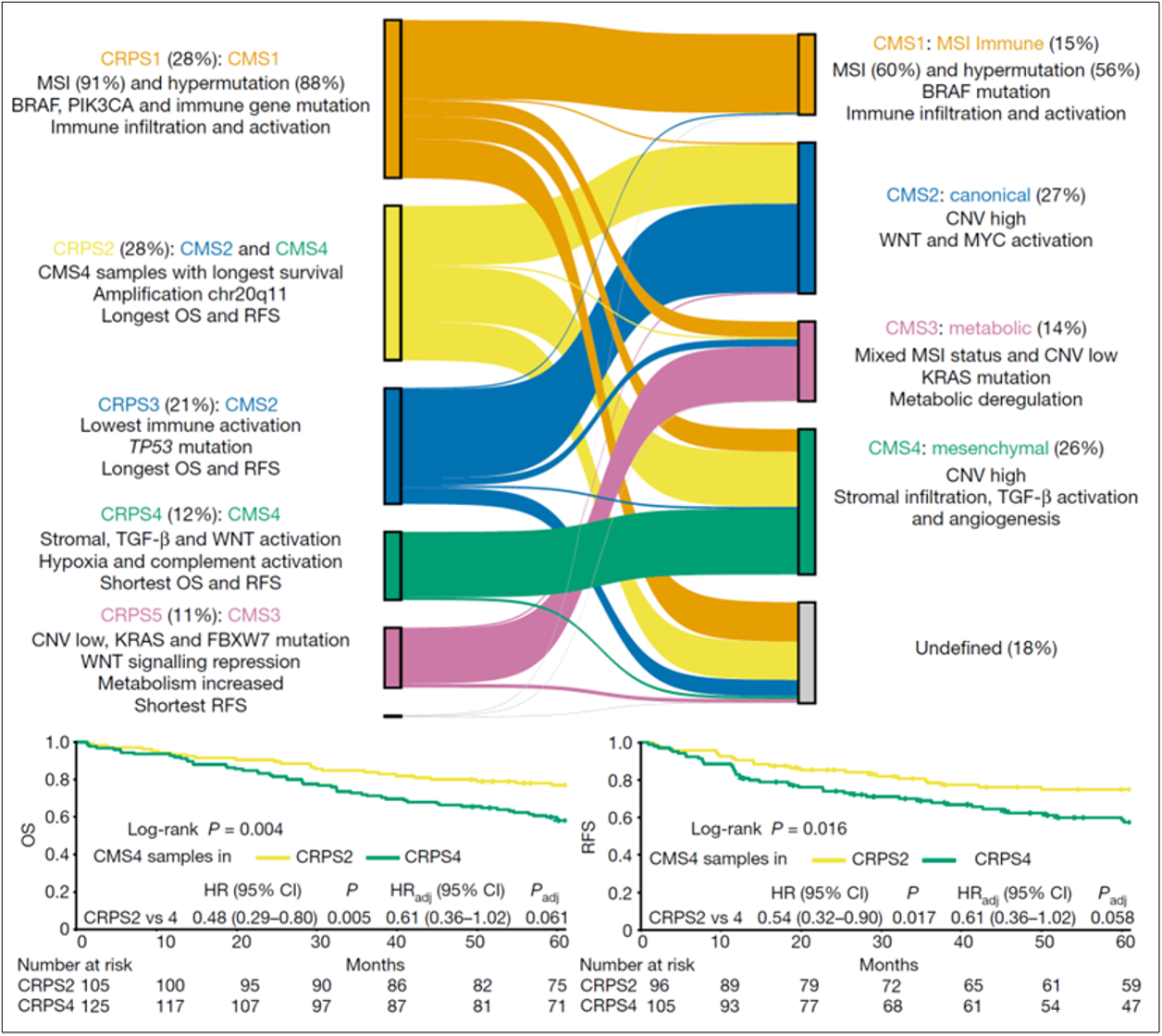Globally, colorectal cancer is the second leading cause of cancer related deaths and the third most common cancer, making it one of the major diseases that impacts human life and health.
With the rapid development in high-throughput genome sequencing, scientists are undertaking ever more detailed analysis of DNA coding region mutations related to colorectal cancer, enabling targeted therapy and immunotherapy to be included as standard-of-care clinical treatments. However, challenges still remain to integrate genomic variation and gene expression profile features to classify patients more precisely and improve the correlation between molecular features, clinical outcomes and disease progression.
A new study published in Nature on 7th August 2024, deepens scientific understanding of the pathogenesis of colorectal cancer by analyzing the whole genomes and transcriptomes of 1,063 primary colorectal cancers in the most extensive study of its kind, providing ground-breaking insights that could lead to more personalized and effective treatments for colorectal cancer. The study brought together scientists from Uppsala University in Sweden, BGI-Research, BGI Genomics and others, in the largest integrated genome and transcriptome analysis of colorectal cancer to date.
 The research “Prognostic genome and transcriptome signatures in colorectal cancers” was published in Nature.
The research “Prognostic genome and transcriptome signatures in colorectal cancers” was published in Nature.
The research team sequenced and analyzed 1,063 colorectal cancer samples from Sweden’s Uppsala/Umea Comprehensive Cancer Cohort (U-CAN Cohort), generating 412 terabytes of data. 94% of the patients had completed 5-year clinical follow-ups, forming the largest multi-omics study of colorectal cancer globally. The study systematically mapped the panoramic view of genomic variation events related to colorectal cancer, and combined gene expression typing to reveal molecular features closely related to prognosis.
The study identified 96 significantly mutated driver genes, including 9 that are new to colorectal cancer and 24 that are new to any cancer. Certain mutations, including those in the WNT, EGFR, and TGF-β pathways, were linked to survival rates. Timing analysis demonstrated that mutations in APC, TP53, KRAS, BRAF, ZFP36L2, TCF7L2, FBXW7, BCL9L and SOX9 were early events, while mutations in TRPS1, GNAS and CEP170 were predisposed to appear at later stages of cancer development.
The research team then conducted an integrated analysis of the mutated genes and the gene expression levels.This identified five CRC prognostic subtypes (CRPSs) with unique molecular features.
These findings provide promising strategies and data resource for early detection and development of targeted therapies in colorectal cancer and reveal important molecular changes associated with tumor invasion and metastasis. The study also discovered disease-related mutations in the mitochondrial genome and non-coding regions, and systematically summarized mutations significantly associated with disease progression.
 UP: Comparison of CRC prognostic subtypes (CRPSs) to the Consensus Molecular Subtypes (CMSs) for the same dataset.
UP: Comparison of CRC prognostic subtypes (CRPSs) to the Consensus Molecular Subtypes (CMSs) for the same dataset.
DOWN: Kaplan–Meier survival curves (log-rank test) for CMS4 samples allocated to CRPS2, and CMS4 samples allocated to the CRPS4 group.
Dr. Tobias Sjöblom, Professor at Department of Immunology, Genetics and Pathology at Uppsala University and corresponding author of the study noted that the study achieved the largest comprehensive analysis of colorectal cancer with genomes and transcriptomes to date, and combined molecular features with high quality clinical data: “The combination of our large and clinically well-annotated patient cohort with the impressive sequencing and data analysis capabilities and competencies at BGI was essential to the success of this project. We look forward to future scientific collaborations in this area,” he said.
Dr. Lin Cong, Specialized Scientist from the BGI Genomics Institute of Intelligent Medical Research and co-corresponding author of the study, said: “Since 2018, Uppsala University and BGI have carried out in-depth cooperation on the U-CAN cohort. This time, BGI’s advanced genomics technology and data analysis resources were applied to a large-scale colorectal cancer population. Not only were the significant predictive effects of multiple mutation events on prognosis found, but the newly constructed fine typing of expression profiles will also play an important role in guiding individualized diagnosis and treatment of colorectal cancer in the future.”
Dr. Li Fuqiang Bioinformatics Scientist from BGI-Research and co-first author of the study, said: "In-depth research on large cohorts requires the assistance of technology. Thanks to the high-quality data capabilities and cost advantages of DNBSEQ platform, it is possible to support large-scale multi-omics data for disease cohorts. In the future, a multi-omics technology platform that integrates regularization, standardization, automation, informatization, intelligence, and scale will empower large-scale genomic research cooperation and facilitate the research and application of big data for large groups of people.”
This research can be assessed here: https://www.nature.com/articles/s41586-024-07769-3



